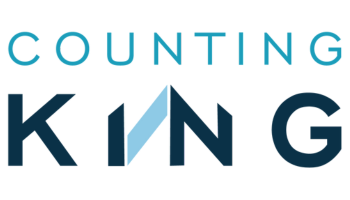June 23rd 2023 – GOBankingRates – View the article here.
The inflation rate increased by 4.3% from May 2022 to May 2023, according to the Consumer Price Index (CPI). While this is still higher than the long-term average, signs suggest that the rate of inflation is slowing down from 40-year highs in 2022. This is good news because during periods of lower inflation, interest rates tend to drop and consumer purchasing power goes further.
But that doesn’t mean you should be careless with your money. Many people make short-term financial mistakes based on the current rate of inflation that lead to long-term repercussions when it comes to their spending, saving and investment strategies.
“When inflation slows down, it’s natural for people to reassess their financial strategies and make adjustments,” said Holley Cary, vice president and financial planner at First Horizon Bank. “However, it’s crucial to approach this period with careful consideration and avoid making common mistakes that can have major consequences. By understanding these pitfalls and adopting prudent approaches, you can navigate the changing economic landscape more effectively and secure your long-term financial well-being.”
That said, here are the top six mistakes to avoid as inflation slows down, according to financial experts.
Becoming Complacent With Your Money
Whether it’s in regard to saving, spending or investing, many people become complacent with their money during periods of low inflation. This can lead to regret down the line.
“They made choices about what were wants versus needs. As inflation eases, it is best to stay money-vigilant and not let your purchases grow again. Any extra money left over should go towards your goals, including paying down debt, and saving for the future.”
Failing To Make Long-Term Financial Plans
With inflation slowing down, many people make the mistake of easing up on their finances and focusing on the short term. But this can have negative effects, especially if inflation starts to rise in the future.
“Slower inflation can create a false sense of stability, leading some individuals to neglect long-term financial planning,” said Abby Joseph, founder and CEO at Serenity Financial Services. “Retirement planning, education funding, and other important goals should not be overlooked during this period. It’s essential to maintain a long-term perspective and make informed decisions.”
Try to focus on the long-term impact of inflation, rather than the short-term effects only. High inflation means less purchasing power, but low inflation doesn’t necessarily bring your purchasing power back to where it was. If you have a little extra money because of inflation slowing down, now’s a good time to make some smart financial decisions regarding it.
Ignoring Other Inflation Rates
The CPI’s inflation rate is perhaps one of the most well-known measurements of inflation out there. It reports changes in the cost of household services and goods, which tends to be relevant to the average consumer.
However, the CPI excludes certain things including income taxes, life insurance and investment items like stocks, bonds, real estate, and business expenses. Considering this, the rate of inflation as determined by the CPI may not be the most relevant one to you. That’s why it’s important to think about the various inflation rates.
For example, “CPI-e tracks the market basket of goods and services purchased by Americans 62 years of age and older,” said Joe Buhrmann, CFP, ChFC and senior financial planning consultant at Fidelity’s eMoney Advisor. “Oftentimes, this group is spending less on major purchases such as homes and cars but more on healthcare or travel.”
Reverting to Old Financial Habits
“Perhaps the biggest financial mistake individuals make as inflation slows is unraveling the positive shifts made during the inflationary period,” said Peter T. Malone, CFA, CFP, director of portfolio manager at Crestwood Advisors.
For instance, say you made a strict household budget when inflation was at its peak. Perhaps you slashed unnecessary expenditures, switched to more affordable brands, and started finding other ways to maximize your money. Just because inflation is slowing down doesn’t mean you should give up these habits.
Malone added, “People did the difficult part of working on personal cash flow, and continuing that trend leads to greater saving and potential investing opportunities focused on longer term goals. If you can buy the same goods and services, but do so at lower prices, you are indirectly increasing savings.”
Skipping Out on Investment Opportunities
“Many get complacent as inflation slows down, in terms of their investment strategy,” said Richard Gardner, CEO at Modulus. “Some even begin to slow down investment into their retirement account. These are mistakes that have a high opportunity cost in comparison to continued, wise investment.”
Some people also fail to diversify their investment portfolio during slow inflation periods, or they ignore the potential for new investments. “Slower inflation can impact investment markets differently,” said Joseph. “It’s a mistake to assume that the same investment strategies that worked during a high-inflation period will continue to yield the same results. Failing to diversify investments across different asset classes and regions can increase risk and potentially limit returns.”
Accumulating More Debt
Interest rates typically drop when inflation starts slowing down. This can cause people to take out loans or other forms of debt that they don’t need, or that they should have held out on.
“It is advisable to refrain from debt for a few years and wait to rebuild purchasing power first before taking on extra responsibility,” said Young Pham, a financial advisor and investment analyst with BizReport. “In fact, avoid as much as possible any big purchases that require debt until you have rebuilt your savings.”
If you currently have high-interest debts, consider refinancing them for a lower rate. “Evaluate all your debts, including student loans, credit cards, auto loans, and mortgages,” said Cary. “Look for opportunities to prioritize paying off high-interest accounts first and take advantage of any consolidation options available to you.”
You may also be able to negotiate with your current creditors for better terms or rates. This can save you money in the long run without adding to your current debt load.
Sam Dallow, founder at Counting King, added, “If you need a loan, take advantage of the lower borrowing costs and interest rates – you might be able to secure preferable long-term borrowing costs. On a similar note, you could use this opportunity to start paying down high-interest debts (this could be in the form of a credit card or personal loan).”

